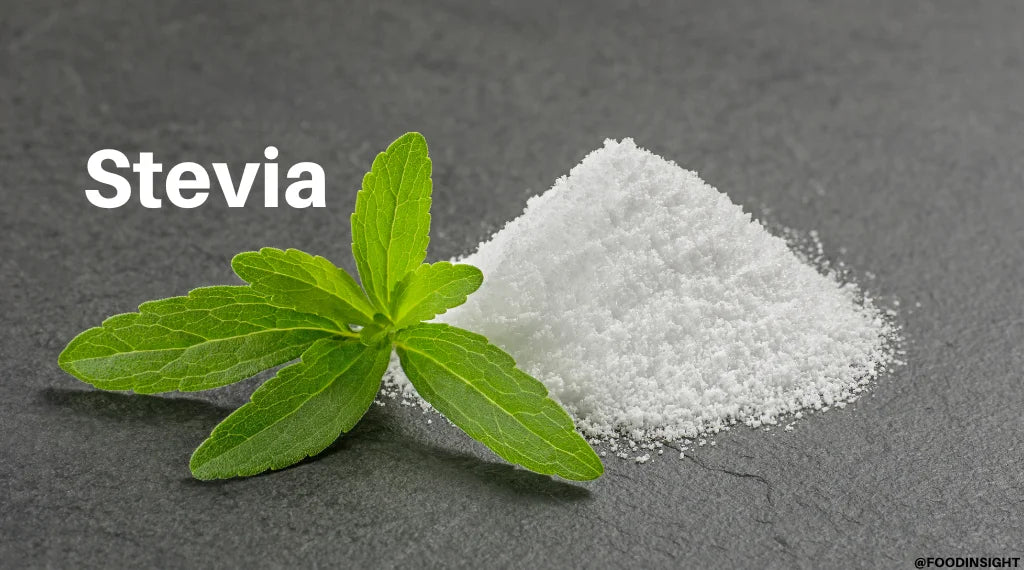Whether you’re mixing up an electrolyte drink, sipping on a pre-workout, or sweetening your protein shake, stevia is everywhere. But is it actually good for you?
Let's break it down with the latest research and regulatory guidance — no fluff, just facts.
🍃 What Is Stevia?
Stevia is a natural, zero-calorie sweetener extracted from the leaves of the Stevia rebaudiana plant, native to South America. Its sweetness comes from compounds called steviol glycosides — mainly rebaudioside A and stevioside — which are 200–300x sweeter than sugar but don’t spike blood sugar levels.
✅ Is Stevia Safe?
Yes — and major health authorities agree.
-
The U.S. Food and Drug Administration (FDA) has granted steviol glycosides “Generally Recognized As Safe” (GRAS) status.
→ FDA GRAS Notice for Steviol Glycosides -
The Joint FAO/WHO Expert Committee on Food Additives (JECFA) has evaluated stevia multiple times and established an acceptable daily intake (ADI) of 0–4 mg/kg of body weight. That’s a lot more than most people consume.
→ JECFA Stevia Evaluation (FAO/WHO)
🩸 Does Stevia Affect Blood Sugar?
Not in a negative way — and in fact, it might even help.
A 2016 randomized controlled trial published in the Journal of Nutrition found that stevia did not raise blood glucose or insulin levels, even when consumed before meals.
→ Read the study (NIH)
This makes stevia a strong option for those managing type 2 diabetes, insulin resistance, or simply wanting to avoid sugar crashes.
🧬 What About Gut Health?
This concern gets brought up often, especially with zero-calorie sweeteners. But recent evidence shows that stevia does not negatively impact the gut microbiome at common doses.
A 2024 study confirmed that stevia does not alter gut microbiota composition, supporting earlier work that showed it doesn’t behave like problematic sugar alcohols or artificial sweeteners.
→ Stevia & Microbiota – 2024 Review
🤔 What About Long-Term Use?
Long-term use appears to be safe and non-toxic. Decades of traditional use in South America and Japan — where stevia has been widely consumed since the 1970s — have revealed no significant safety concerns.
Further, reviews from:
-
ACE Fitness
all support that stevia, when used in reasonable amounts, is a safe sugar substitute for most people.
⚠️ What To Look Out For
Some stevia products are heavily processed or blended with other fillers like maltodextrin or erythritol. Always read the label.
Look for:
-
Organic stevia leaf extract
-
Reb A or stevioside as main components
-
No added artificial sweeteners or bulking agents
🧃 Bottom Line
Stevia is:
-
Clinically shown not to spike blood sugar
-
Safe according to FDA and WHO
-
Not disruptive to gut health
-
Derived from a natural plant source
For most people, it’s a great alternative to sugar, especially in clean, low-carb, or performance-oriented nutrition products.
Want to avoid it completely? That’s cool too. But if you're seeing stevia on the label of your favorite health drink, you can feel confident it’s not working against your goals.


Share:
Natural Flavors - The good and the Flavored.
Reclaim Your Vitality: The Power of Electrolytes